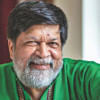Danger to freedom of expression

Several local and international rights organisations have expressed grave concerns over the passing of the Digital Security Bill 2018 and demanded that the government reconsider its controversial sections.
The organisations include Amnesty International, ARTICLE 19, Ain o Salish Kendra and Transparency International Bangladesh.
“This law imposes dangerous restrictions on freedom of expression,” said Saad Hammadi, Amnesty's South Asia campaigner, yesterday.
The Digital Security Bill was passed on Wednesday with a harsh provision allowing police to search or arrest anyone without any warrant.
In a statement, Hammadi said instead of learning from the lessons of the past, the law seeks to repeat them.
“Given how the authorities have arbitrarily arrested hundreds of people in the past six years under the Information and Communication Technology Act, there are serious concerns that the new Act will be used against people who speak out,” he added.
The government's disregard for editors' recommendations and general people's worries shows a lack of concern for the grave issues that have been raised by the civil society regarding the bill, he noted.
“The government must revert its course from this regressive law, that compromises its international commitments; and ensure they fully uphold the right to freedom of expression as protected by international human rights law,” the statement said.
ARTICLE 19 has urged the government to take necessary steps to protect and promote freedom of expression both in law and in practice in the country, by implementing all Universal Periodic Review (UPR) recommendations related to these rights in consultation with civil society.
“Whilst yesterday's [Wednesday's] Parliamentary approval of the Digital Security Act (DSA) -- which now awaits presidential approval -- stands to repeal section 57 of the ICT Act, its most problematic elements will be replicated.
“It is deeply regrettable that despite the laudable commitments made -- including as part of this UPR -- to ensure its compliance with international human rights law, the legislation has not been revised,” it said in a statement.
“The DSA promises to impose far-reaching restrictions on online expression, affecting all Internet users in Bangladesh: broadly criminalising and imposing wholly disproportionate punitive measures for expression lawful under international law. New, and overbroad powers to block and remove online content without judicial oversight, are also of deep concern.”
The organisation also urged the government to review the law with the full and effective participation of civil society, and in particular, freedom of expression organisations, to ensure that digital rights are fully protected.
Rights body Ain o Salish Kendra also decried the law, saying it retained different aspects of section 57 of the ICT Act to curb freedom of expression.
“Section 32 of the Digital Security Act is contradictory to freedom of thoughts, freedom of expression, and freedom of the press guaranteed by the constitution,” it said in a statement.
Expressing concern, the TIB urged the president not to give consent to the bill and send it back to parliament to reconsider the controversial sections.
A good many sections of the new law go against the spirit of the Liberation War as well as against freedom of thought and freedom of expression guaranteed by the constitution, TIB Executive Director Iftekharuzzaman said in a statement.
The law ignores the concerns raised by the stakeholders, including journalists, over sections 8, 21, 25, 28, 29, 31, 32, 43 and 58 that will make their job risky, he said.
The inclusion of provisions of the controversial Official Secrets Act 1923 in the law will create a corruption-friendly atmosphere, the statement said.
This law will create a feeling of insecurity among citizens in the name of digital security, it added.

 For all latest news, follow The Daily Star's Google News channel.
For all latest news, follow The Daily Star's Google News channel. 








Comments